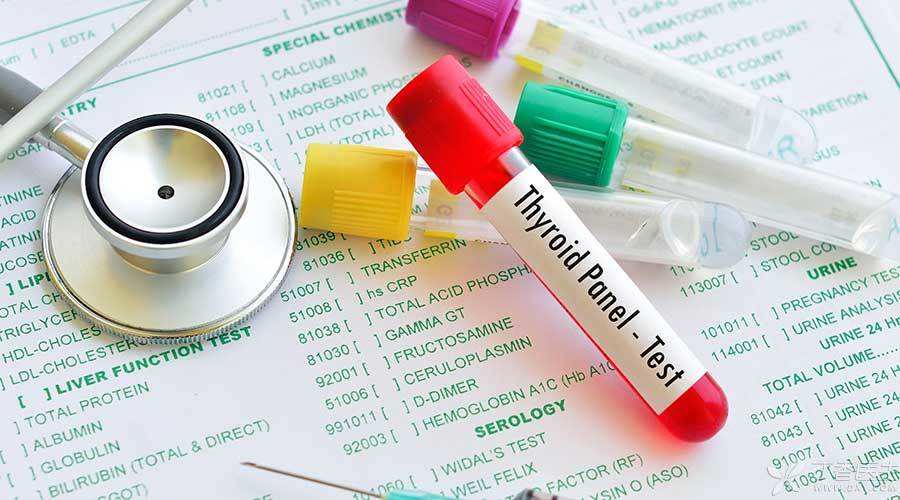
Thyroglobulin (Tg) is an important thyroid detection index, which can give doctors important information at critical moments.
However, for the general public and even non-thyroid specialists, the role of Tg is somewhat mysterious. Many people will check Tg at the same time when examining thyroid function, but they do not know how to interpret the results of Tg.
Is Tg what? What is the significance of Tg increase? Who needs to check TG?
Healthy thyroid gland produces Tg
Healthy thyroid gland is filled with jelly-like substances called colloid. Colloid can help synthesize and store thyroid hormones.
The main component of colloid is thyroglobulin-Tg.
When the thyroid gland is damaged for various reasons, a large amount of TG will enter the blood from the thyroid gland. At this time, blood will be drawn to detect TG and a significant increase will be found.
Hyperthyroidism, thyroid nodules, subacute thyroiditis, early Hashimoto thyroiditis… all cause blood Tg to rise. Therefore, it is difficult to judge which thyroid disease is by detecting Tg.
Differentiated thyroid cancer also produces Tg
Differentiated thyroid cancer refers to papillary carcinoma and follicular carcinoma. More than 90% of thyroid cancer patients have differentiated thyroid cancer.
[Differentiated] This medical term refers to the maturity and function of cancer cells that are very similar to normal cells.
Therefore, differentiated thyroid cancer, like normal thyroid gland, can also produce TG.
After total thyroidectomy, Tg should be reduced to 0
For patients with differentiated thyroid cancer, after all thyroidectomy and iodine 131 treatment, there is no source of TG in the body and TG is basically not detected in the blood.
If the blood TG level is still very high, it means that there may be residual cancer tissue in the body or thyroid cancer has recurred.

Which thyroid diseases require TG detection?
The following three types of patients need to be tested for TG:
1. Patients with differentiated thyroid cancer undergoing total thyroidectomy
For patients with differentiated thyroid cancer who have removed all thyroid gland, TG level must be monitored for a long time to determine whether there is tumor residue or tumor recurrence.
Tg is usually checked every 6 months.
The TG results are interpreted as follows:
- Tg > 1 ng/ml indicates the presence of cancer cells in the body if Tg is detected in the state of taking levothyroxine (TSH inhibition state). If Tg is detected in the state of stopping levothyroxine (and TSH increases above 30 mU/L), Tg > 2 ng/ml indicates the presence of cancer cells in the body.
2. Patients with differentiated thyroid cancer after partial thyroidectomy
For patients with differentiated thyroid cancer who have not completely removed thyroid gland, TG should also be reexamined every 6 months after operation.
If Tg continues to rise, it may be normal thyroid tissue growing or cancer cells growing. Neck ultrasound and whole body scan imaging need to be combined to determine which situation is.
3. Children with congenital hypothyroidism
Babies suffering from hypothyroidism at birth also need to be tested for TG to determine the cause of hypothyroidism.
If hypothyroidism is caused by thyroid deficiency, Tg is usually not detected. These children need to take thyroxine for life.
Except for the above three types of patients, other thyroid diseases (such as hyperthyroidism, hypothyroidism, thyroiditis, thyroid nodules, undifferentiated thyroid cancer, etc.) actually do not need to check TG, because it is not conducive to the diagnosis and treatment of the disease.
Don’t forget to check the thyroglobulin antibody TgAb
Thyroglobulin antibody TgAb is common in Hashimoto thyroiditis patients.
If TgAb is also present in patients with thyroid cancer, it will interfere with the detection of Tg. Because TgAb can be combined with Tg, Tg cannot be detected.
In order to make TG detection more accurate, patients with differentiated thyroid cancer need to detect TGAB simultaneously before and after surgery.
- If there is no increase in TgAb before and after the operation, you can safely judge whether the tumor has residue or recurrence according to Tg level. If there is an increase in TgAb before the operation, the state of the tumor in the body needs to be judged according to the dynamic changes of TgAb and Tg after the operation (very complicated and needs to be judged by doctors). If there is no TgAb before the operation, but the continuous increase in TgAb after the operation may indicate tumor recurrence.
